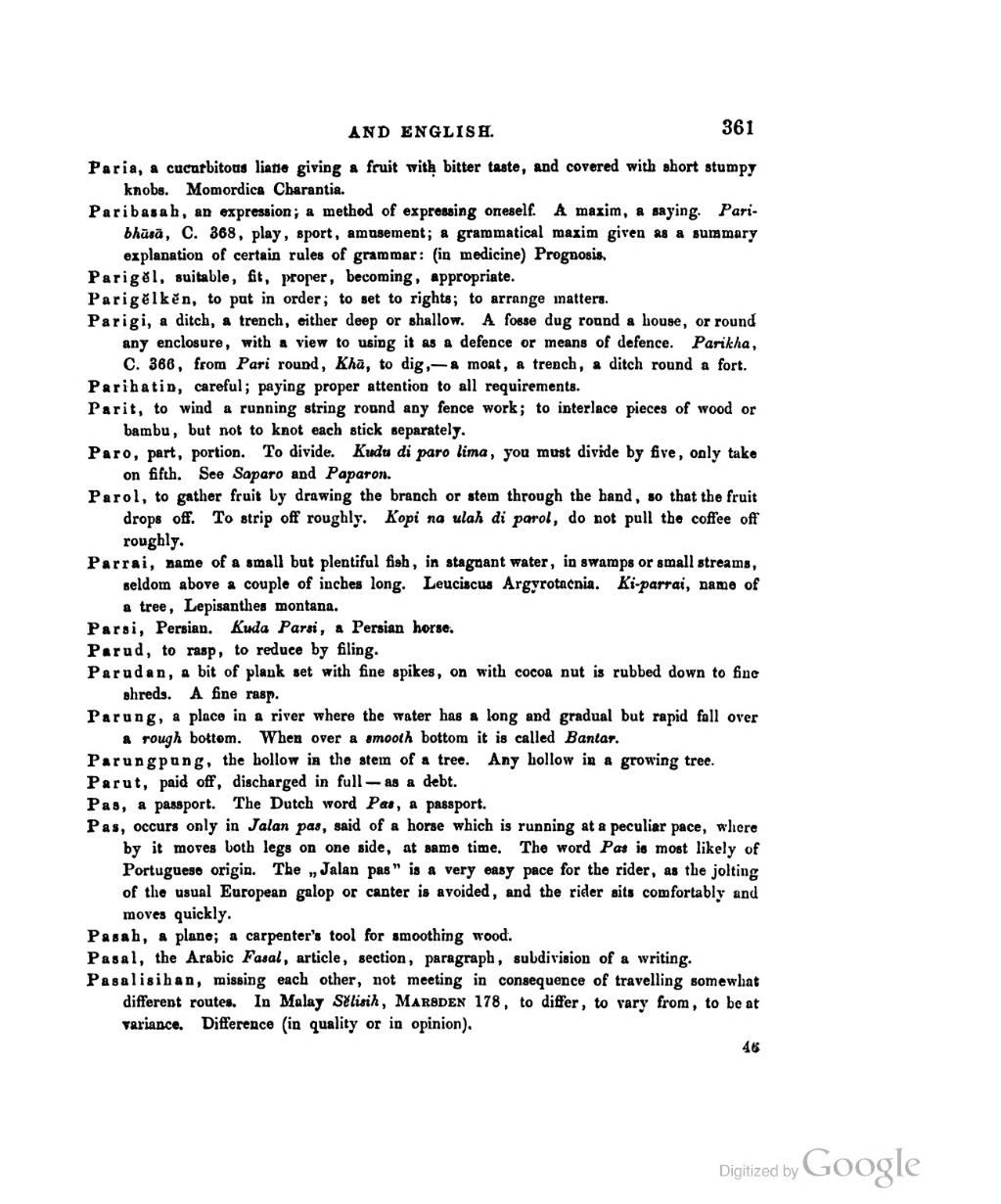Paria, a cucurbitous liane giving a fruit with bitter taste, and covered with short stumpy knobs. Momordica Charantia.
Paribasah, an expression; a method of expressing oneself. A maxim, a saying. Paribhāsā, C. 368, play, sport, amusement; a grammatical maxim given as a summary explanation of certain rules of grammar: (in medicine) Prognosis.
Parigěl, suitable, fit, proper, becoming, appropriate.
Parigělkěn, to put in order; to set to rights; to arrange matters.
Parigi, a ditch, a trench, either deep or shallow. A fosse dug round a house, or round any enclosure, with a view to using it as a defence or means of defence. Parikha, C. 366, from Pari round, Khā to dig, — a moat, a trench, a ditch round a fort.
Parihatin, careful; paying proper attention to all requirements.
Parit, to wind a running string round any fence work; to interlace pieces of wood or bambu, but not to knot each stick separately.
Paro, part, portion. To divide. Kudu di paro lima, you must divide by five, only take on fifth. See Saparo and Paparon.
Parol, to gather fruit by drawing the branch or stem through the hand, so that the fruit drops off. To strip off roughly. Kopi na ulah di parol, do not pull the coffee off roughly.
Parrai, name of a small but plentiful fish, in stagnant water, in swamps or small streams, seldom above a couple of inches long. Leuciscus Argyrotaenia. Ki-parrai name of a tree, Lepisanthes montana.
Parsi, Persian. Kuda Parsi, a Persian horse.
Parud, to rasp, to reduce by filing.
Parudan, a bit of plank set with fine spikes, on with cocoa nut is rubbed down to fine shreds. A fine rasp.
Parung, a place in a river where the water has a long and gradual but rapid fall over a rough bottom. When over a smooth bottom it is called Bantar.
Parungpung, the hollow in the stem of a tree. Any hollow in a growing tree.
Parut, paid off, discharged in full — as a debt.
Pas, a passport. The Dutch word Pas, a passport.
Pas, occurs only in Jalan pas, said of a horse which is running at a peculiar pace, where by it moves both legs on one side, at same time. The word Pas is most likely of Portuguese origin. The „Jalan pas" is a very easy pace for the rider, as the jolting of the usual European galop or canter is avoided, and the rider sits comfortably and moves quickly.
Pasah, a plane; a carpenter's tool for smoothing wood.
Pasal, the Arabic Fasal, article, section, paragraph, subdivision of a writing.
Pasalisihan, missing each other, not meeting in consequence of travelling somewhat different routes. In Malay Sělisih, MARSDEN 178, to differ, to vary from, to be at variance. Difference (in quality or in opinion).
